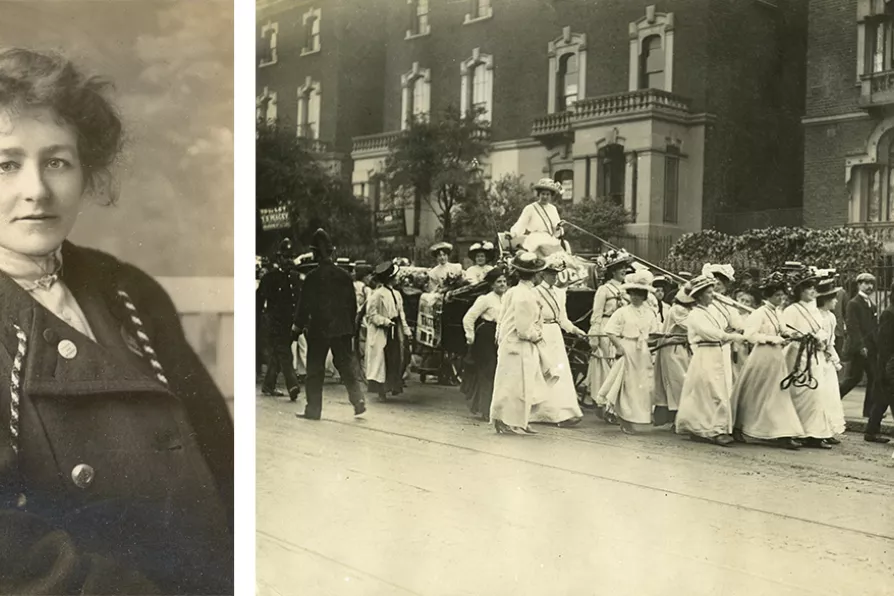RICHARD BURGON MP speaks to Ben Chacko about the Labour right’s complicity in the Mandelson scandal and the need for a total break with Starmerism if the party is to defeat Reform


FAMOUS inventors often get streets named after them, and in Swindon there’s one called Edith New Close. Edith was one of two women who invented smashing windows by throwing stones through them.
Edith Bessie New was born in Swindon, Wiltshire, in 1877. Her father, a railway clerk, died the following year (hit by a train while off duty) and at the age of 14 Edith was already working as a teacher at a primary school. By the turn of the century she had become a qualified teacher and moved to London.
She soon became involved in the campaign to win votes for women, having heard suffrage campaigner Emmeline Pankhurst and Labour politician Keir Hardie speak at a demonstration in Trafalgar Square. She evidently hurled herself into the battle with few restraints, because her first arrest came a few months later, in March 1907. A peaceful lobbying of the House of Commons was met with police brutality and turned into a battle. Edith was one of 75 women arrested, and had her first taste of life as a prisoner. It was far from her last.

The heroism of the jury who defied prison and starvation conditions secured the absolute right of juries to deliver verdicts based on conscience — a convention which is now under attack, writes MAT COWARD

MAT COWARD tells the story of Edward Maxted, whose preaching of socialism led to a ‘peasants’ revolt’ in the weeks running up to the first world war












